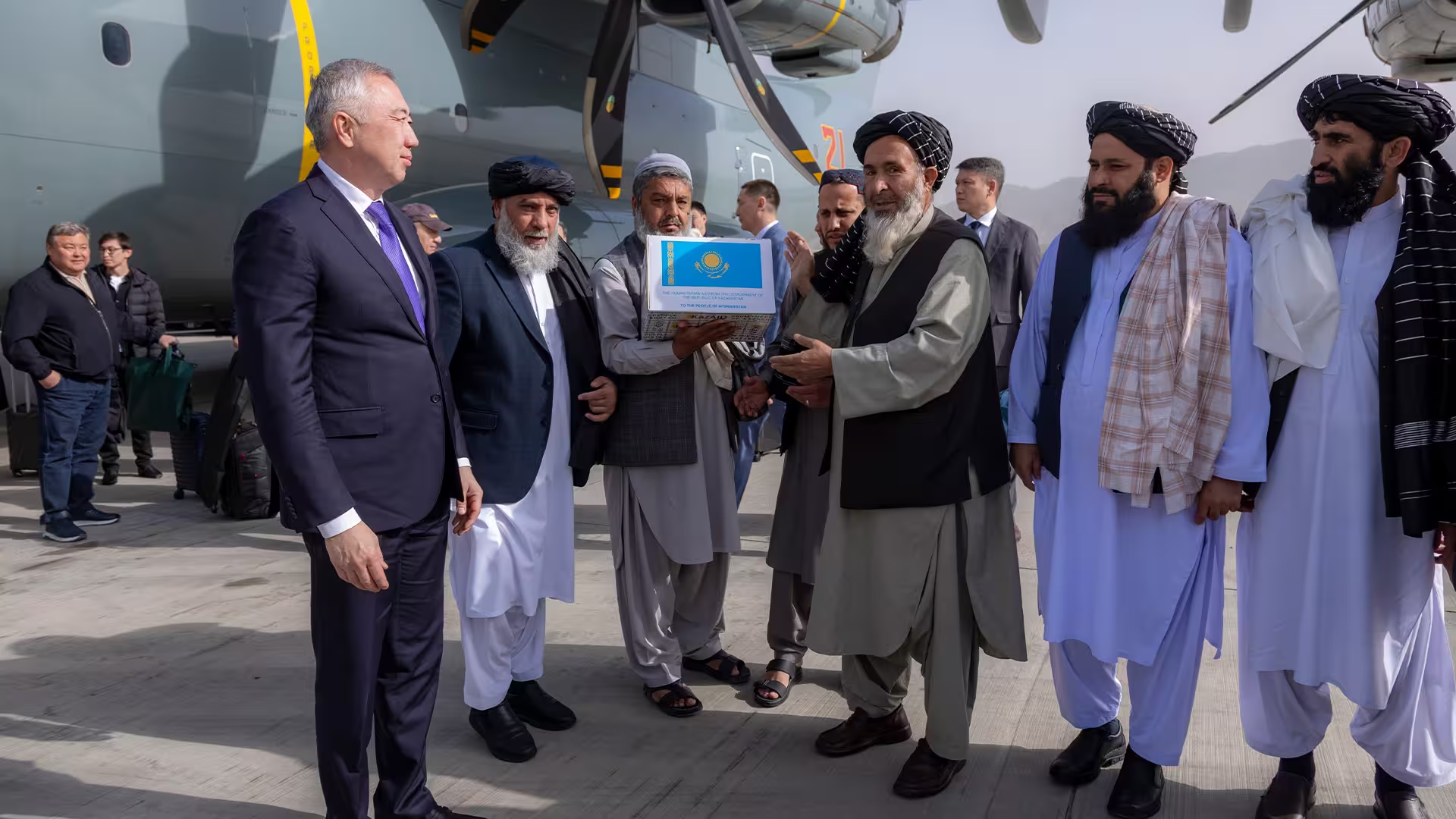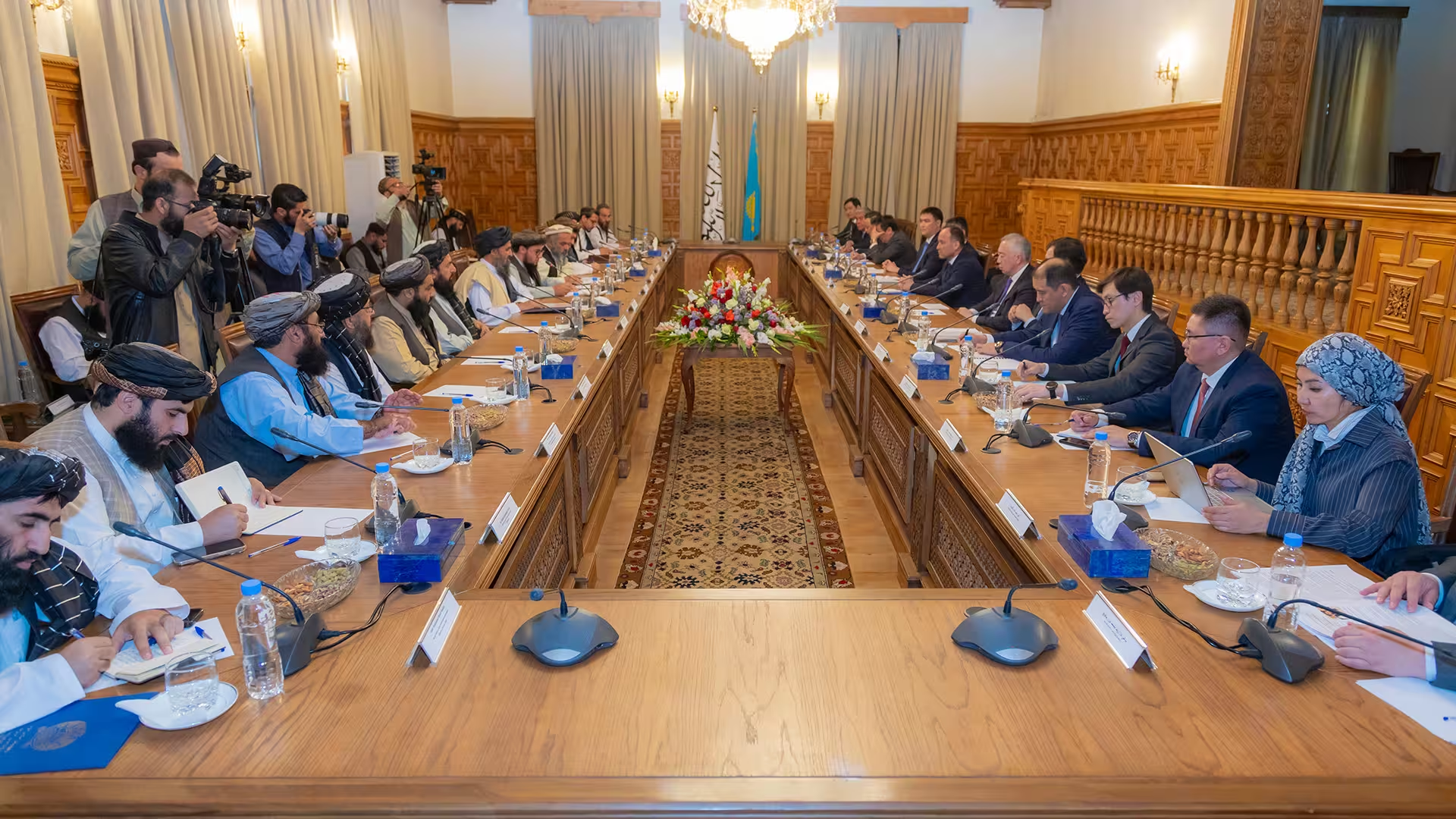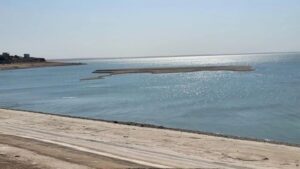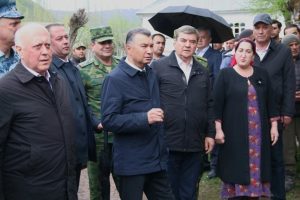Kazakhstan has handed over a new batch of humanitarian aid to Afghanistan during a high-level visit to Kabul. Led by Deputy Prime Minister and Minister of National Economy Serik Zhumangarin, the Kazakh delegation aims to not only provide immediate relief but also lay the groundwork for a dramatic expansion in trade and economic cooperation.

The aid, which included medicines, is part of Kazakhstan’s ongoing support to its neighboring country. Zhumangarin also met with Afghanistan’s Deputy Prime Minister, Abdul Ghani Baradar, to discuss expanding trade and economic ties.
Since 2021, Kazakhstan has delivered tens of thousands of tons of flour, food, medicine, household items, and warm clothing to Afghanistan. Additionally, in March 2024, the United Nations regional center for Sustainable Development Goals was opened in Almaty, aiming to foster socio-economic and business cooperation between Central Asia and Afghanistan. Zhumangarin highlighted the center’s role in advancing these goals during his meeting with Baradar, with Central Asian countries offering their support for the Kazakh initiative.
Kazakhstan ranks among the top ten trading partners of Afghanistan, with grain and flour being its traditional exports. However, 2024 has seen an increase in the export of Kazakh sugar to Afghanistan, with 143,000 tons sent, a dramatic rise compared to 19,100 tons in 2023. This growth is a sign of expanding trade opportunities, with potential for increased exports of confectionery and flour products as well. Kazakhstan is also keen to explore opportunities to supply early Afghan vegetables to its capital markets.

A key part of the bilateral discussions is the signed roadmap aimed at boosting trade turnover to $3bn. This goal is backed by the vast mineral potential in Afghanistan, which offers opportunities for exploration and resource extraction. Kazakhstan has shown significant interest in investing in Afghanistan’s mining sector.
On April 14, a team of Kazakh specialists, including geologists and engineers, visited Afghanistan to explore potential mineral deposits. In collaboration with the Afghan Ministry of Mining and Petroleum, the team collected 130 kg of ore samples from Nuristan province, which contains beryllium, lead, and zinc. These samples will be analyzed in Kazakhstan, and based on the results, further discussions will take place to explore the possibility of developing these deposits.
To strengthen bilateral trade, Zhumangarin proposed the establishment of a Kazakh trading house in Kabul, an initiative that was met with approval by Baradar. The Afghan side expressed interest in opening a trading house in Kazakhstan as well. The opening of these trading houses is expected to facilitate mutual investments across various sectors.

In addition to trade, Kazakhstan has also offered to supply buses manufactured by QazTehna to Afghanistan, should there be interest. This proposal aligns with Kazakhstan’s broader strategy to enhance economic cooperation in diverse fields.
Zhumangarin’s visit also included discussions with Afghanistan’s Minister of Communications and Information Technology, Najibullah Haqqani, about Kazakhstan’s interest in participating in infrastructure and telecommunications projects in Afghanistan. Notably, the Kazakh delegation proposed joint efforts in laying optical cables during the construction of a new section of the Torghundi-Herat railway.
Moreover, during a meeting with Afghanistan’s Minister of Trade and Industry, Nuriddin Azizi, the two sides explored opportunities for diversifying mutual trade between the two countries.




